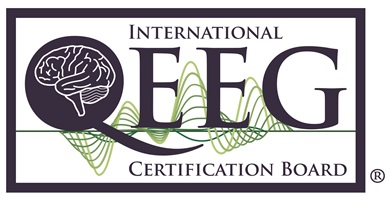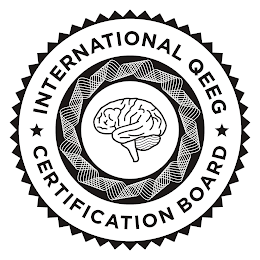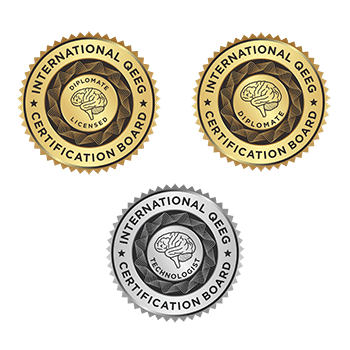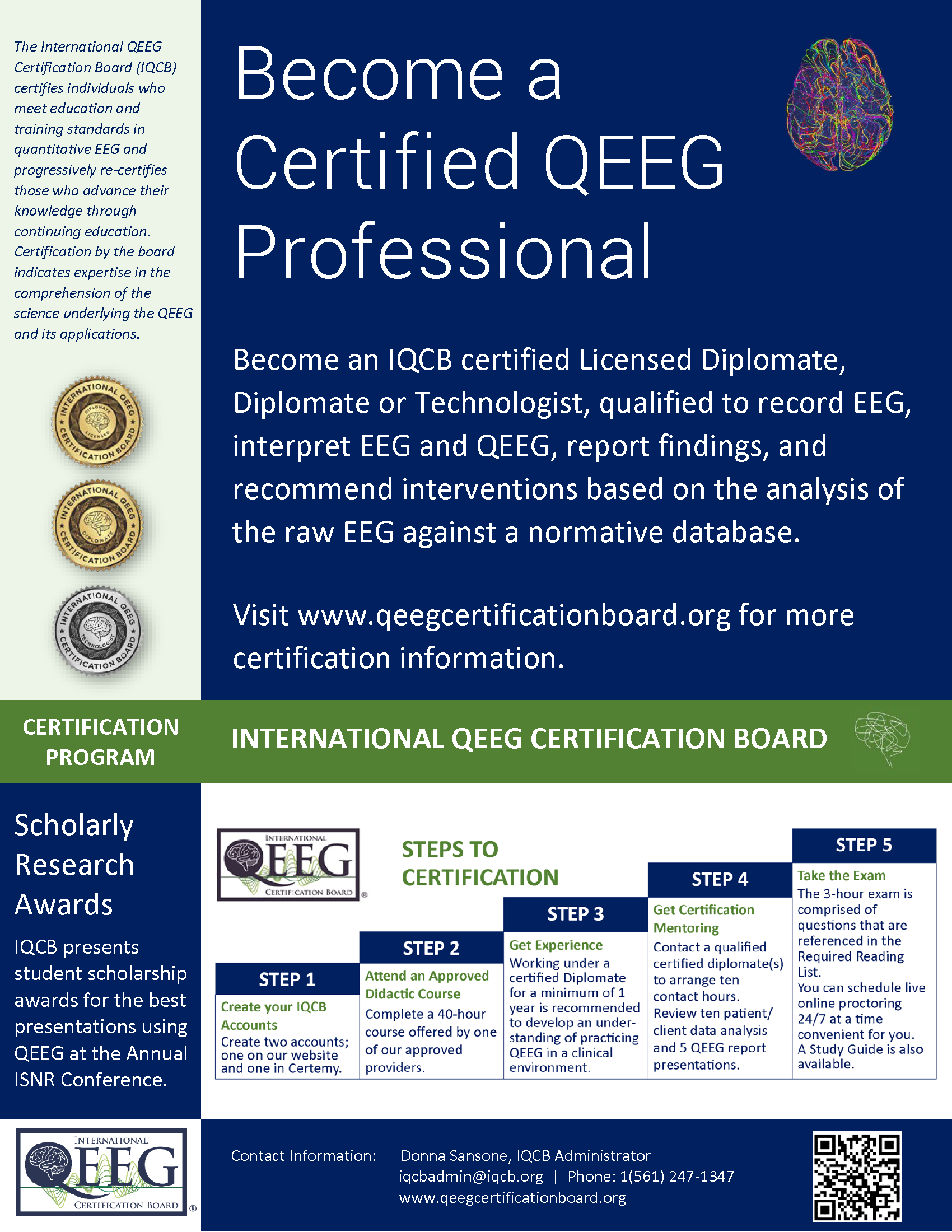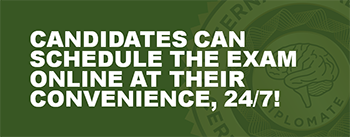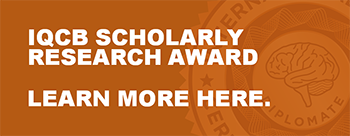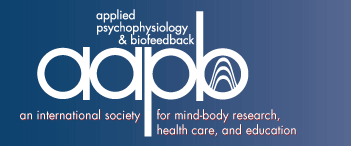Advance your career by becoming IQCB Certified.
Get QEEG Certified here.
Find a Certified QEEG Professional.
Find a Certified QEEG Mentor.
The International QEEG Certification Board (IQCB) certifies individuals who meet education and training standards in quantitative electroencephalography (QEEG) and electrophysiology. IQCB progressively re-certifies those who advance their knowledge through continuing education.
The International QEEG Certification Board (IQCB) was created in 1995 with the mission of providing a formal certification standards in QEEG analysis. In March of 2015, the board adopted a new name, International QEEG Certification Board to reflect our global identity. We now have Certificants in many countries around the world. Names of certified practitioners can be found on the IQCB website in our Directory search function.
IQCB is an autonomous, nonprofit corporation. IQCB policies and procedures are set by an independent board of directors, comprised of a rotating group of distinguished clinicians, researchers, and educators. IQCB also has an advisory committee of distinguished professionals in the field of brain imaging and analysis.
Board certification is the mark of distinction for providers of brain imaging and analysis services. Certification is valid for 3 years. Recertification requires continuing education in advanced knowledge of recent developments in the field and ethical practice.
Board certification establishes that an individual has met strict requirements and standards of practice in the field of QEEG technology. However, IQCB certification is not a substitute for a state-issued license or other credential to practice one’s profession. Candidates for certification who do not hold a professional license or its equivalent must stipulate that they practice under the supervision of a licensed provider when treating a medical or psychological condition.
IQCB certifies individuals who are functioning in the field of Quantitative Electroencephalography on three levels:
- Licensed Diplomate for clinical, behavioral and/or educational purposes.
- Diplomate for clinical, behavioral, and/or educational purposes.
- Technologist for clinical, behavioral, and/or educational purpose
The IQCB is neither a licensing agency nor an academic institution. Certification by the board indicates expertise in the understanding of the science underlying the QEEG and its applications.
Vision Statement
To establish and improve the best quality standards of the foundational knowledge, clinical proficiency, and professional practice of quantitative EEG (QEEG), and accomplish this through the successful completion of professional mentoring and a rigorous certifying examination covering all aspects and applications of QEEG.
Mission Statement
To certify individuals who meet education and training standards in quantitative EEG (QEEG) analysis and progressively recertify those who advance their knowledge through continuing education.
QEEG Defined
Click here for a more detailed description.
We’re here to certify you.
All applicants must apply for candidacy in order to become certified.
This site is designed to assist professionals, seeking to be certified in QEEG, obtain the latest information about exam dates and sites, the recommendations for study, and other information about QEEG certification at the Certification Exams page.
Applicants will certainly want to use the current Resources Section. It contains source reading materials that form the basis of all exam questions.
Professional certification is the voluntary process by which a non-governmental entity grants a time-limited recognition to an individual after verifying that predetermined and standardized criteria have been met. Because QEEG analysis is an unregulated field, certification is crucial for providing standards of care. To be viable as a professional service, standards of competence and clinical practice must be defined and measured. Since 1995, IQCB has taken on this task and offers certification programs. Through the IQCB recertification program, Certificants are held accountable to a code of ethics, obtains specified continuing education, and maintains proper credentialing appropriate for clinical practice.
IQCB has three levels of certification that Certificants may use to publicly identify their certification where appropriate; i.e. business cards, conference name badges, directory listings, presentations, speaker listings, and website.
- QEEG-DL designates Board Certified at the Diplomate level with licensure.
- QEEG-D designates Board Certified at the Diplomate level with a MA or higher degree.
- QEEG-T designates Board Certified at the Technologist level.
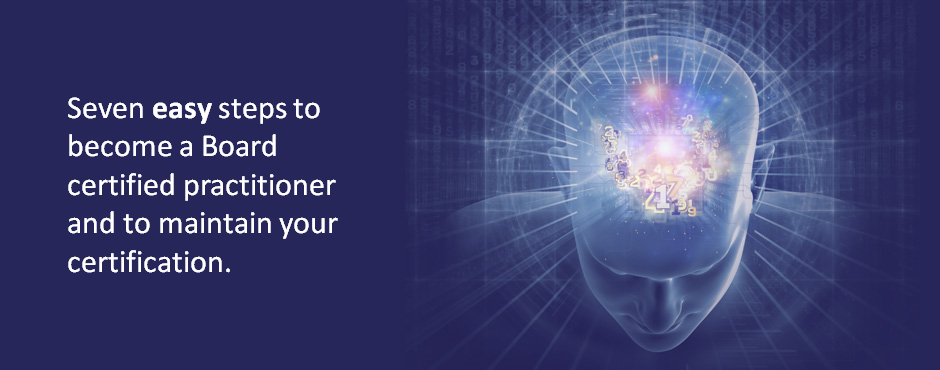
1. Meet minimum qualifications
- Earned acceptable degree or present evidence of competency via CV or publications for board approval (required for Diplomate certification). Also see IQCB Acceptable health care fields.
- Licensed/Credentialed in clinical practice, unlicensed providers must work under the supervision of an appropriately-credentialed QEEG-Diplomate provider.
- Adhere to IQCB Professional Standards & Ethical Principles.
2. Register for an online account
3. Submit an application and sign Professional Standards & Ethical Principles.
4. Get an IQCB certified mentor and complete mentorship requirements
5. Attend an IQCB approved QEEG didactic course
6. Pass IQCB certification exam with 70% or higher
7. Maintain certification
NEW Levels of certification
Certification is based on the professional health care background of the clinician and how the different modalities will be used professionally.
Diplomate Certification is now available at two levels:
QEEG-DL
Available for individuals with local/state licensure in an approved health care field or by presenting evidence of competency via CV or publications for board approval.
QEEG-D
Candidates with advanced degrees (Masters and above in a related area) will be eligible for Diplomate certification.
Technologist Certification
Available for individuals without a MA or higher degree or licensure. Technologists must work under the supervision of a QEEG-Diplomate as appropriate for their State and/or country supervision requirements.
